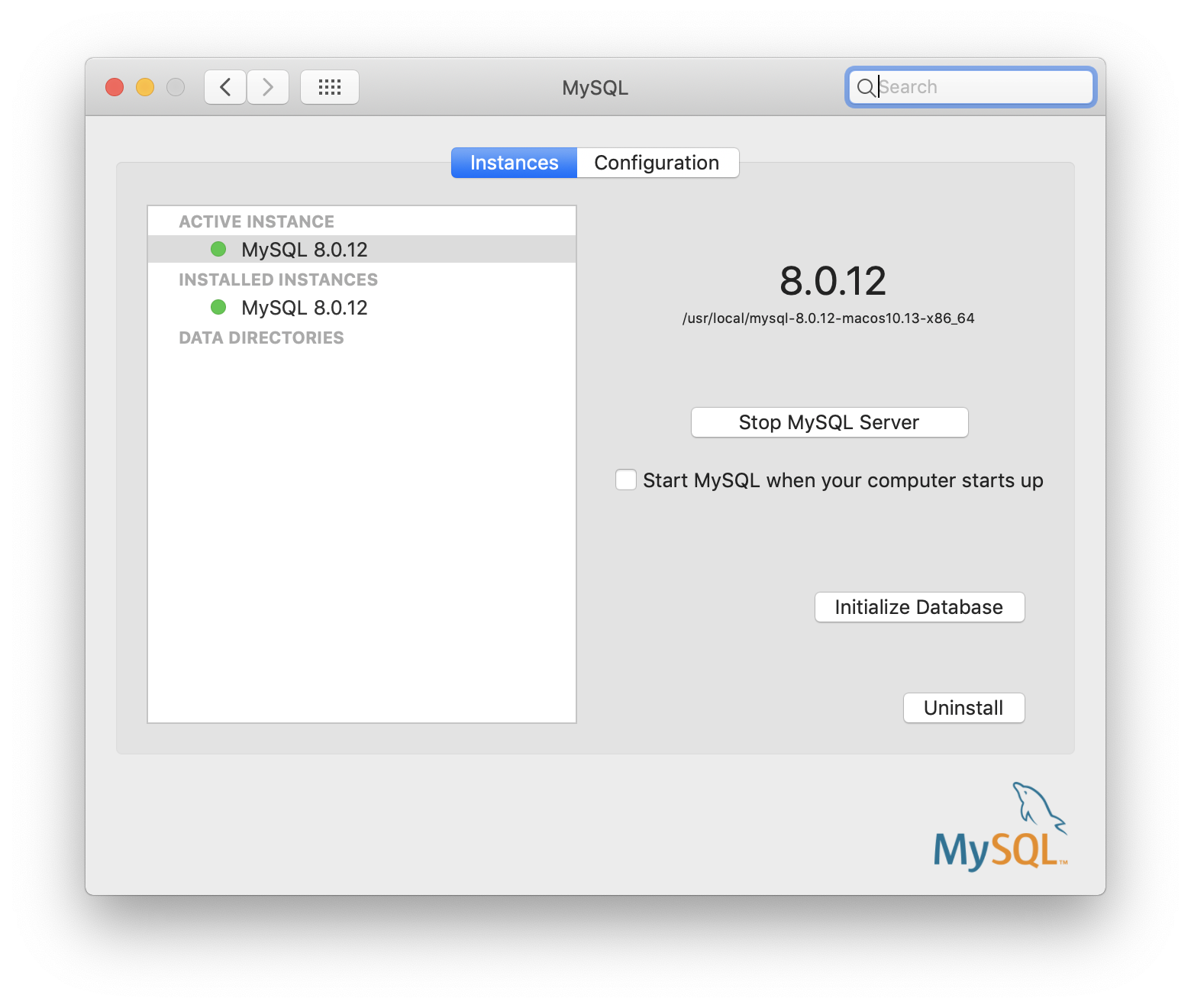- On macOS, this can be achieved by opening the downloaded.tar.gz archive file in the preferred location. If you would like to replace an existing installation, remove the existing google-cloud-sdk directory and extract the archive to the same location.
- $ mycli-help Usage: mycli OPTIONS DATABASE A MySQL terminal client with auto-completion and syntax highlighting. Examples:-mycli mydatabase-mycli-u myuser-h myhost. Com mydatabase-mycli mysql: // myuser @myhost. Com: 3306 / mydatabase Options:-h,-host TEXT Host address of the database.-P,-port INTEGER Port number to use for.
- MySQL Community on Slack; Install Windows. Building mysqlclient on Windows is very hard. But there are some binary wheels you can install easily. MacOS (Homebrew) Install MySQL and mysqlclient: # Assume you are activating Python 3 venv $ brew install mysql $ pip install mysqlclient If you don't want to install MySQL server, you can use mysql.
- Mysql Client Download
- Macos Mysql Client Client
- Macos Mysql Client Cli Commands
- Macos Mysql Client Clip
This quickstart demonstrates how to connect to an Azure Database for MySQL using a PHP application. It shows how to use SQL statements to query, insert, update, and delete data in the database.

Jan 18, 2017 MySQL Utilities is now covered under Oracle Lifetime Sustaining Support Per Oracle's Lifetime Support policy, as of May 30, 2018, MySQL Utilities is covered under Oracle Sustaining Support. Some features of Utilities are on the roadmap for Shell, users are encouraged to migrate to MySQL Shell. Create an Azure Database for MySQL single server using Azure portal or Azure CLI if you do not have one. Based on whether you are using public or private access, complete ONE of the actions below to enable connectivity.
Prerequisites
For this quickstart you need:
An Azure account with an active subscription. Create an account for free.
Create an Azure Database for MySQL single server using Azure portal
or Azure CLI if you do not have one.Based on whether you are using public or private access, complete ONE of the actions below to enable connectivity.
Action Connectivity method How-to guide Configure firewall rules Public Portal
CLIConfigure Service Endpoint Public Portal
CLIConfigure private link Private Portal
CLIInstall latest PHP version for your operating system
Note
We are using MySQLi library to manage connect and query the server in this quickstart.
Get connection information
You can get the database server connection information from the Azure portal by following these steps:
Log in to the Azure portal.
Navigate to the Azure Databases for MySQL page. You can search for and select Azure Database for MySQL.
Select your MySQL server (such as mydemoserver).
In the Overview page, copy the fully qualified server name next to Server name and the admin user name next to Server admin login name. To copy the server name or host name, hover over it and select the Copy icon.
Important
- If you forgot your password, you can reset the password.
- Replace the host, username, password, and db_name parameters with your own values**
Step 1: Connect to the server
SSL is enabled by default. You may need to download the DigiCertGlobalRootG2 SSL certificate to connect from your local environment. This code calls:
- mysqli_init to initialize MySQLi.
- mysqli_ssl_set to point to the SSL certificate path. This is required for your local environment but not required for App Service Web App or Azure Virtual machines.
- mysqli_real_connect to connect to MySQL.
- mysqli_close to close the connection.
Step 2: Create a Table
Use the following code to connect. This code calls:
- mysqli_query to run the query.
Mysql Client Download
Step 3: Insert data
Use the following code to insert data by using an INSERT SQL statement. This code uses the methods:
- mysqli_prepare to create a prepared insert statement
- mysqli_stmt_bind_param to bind the parameters for each inserted column value.
- mysqli_stmt_close to close the statement by using method
Macos Mysql Client Client
Step 4: Read data
Use the following code to read the data by using a SELECT SQL statement. The code uses the method:
- mysqli_query execute the SELECT query
- mysqli_fetch_assoc to fetch the resulting rows.
Macos Mysql Client Cli Commands
Step 5: Delete data
Use the following code delete rows by using a DELETE SQL statement. The code uses the methods:
- mysqli_prepare to create a prepared delete statement
- mysqli_stmt_bind_param binds the parameters
- mysqli_stmt_execute executes the prepared delete statement
- mysqli_stmt_close closes the statement
Clean up resources
To clean up all resources used during this quickstart, delete the resource group using the following command:
Next steps
Manage Azure Database for MySQL server using Portal
We value the diversity of our community. We strive to amplify the voices of the oppressed to eradicate racism and xenophobia. We ask our community to stand together in support of the Black community.
MyCLI is a command line interface for MySQL, MariaDB, and Percona with auto-completion and syntaxhighlighting.
Macos Mysql Client Clip
- Source: https://github.com/dbcli/mycli
- Bug tracker: https://github.com/dbcli/mycli/issues
If you already know how to install python packages, then you can simply do:
If you're on macOS you can install it via homebrew.
If you're having trouble with the quick start, check the install page fordetailed instructions.
